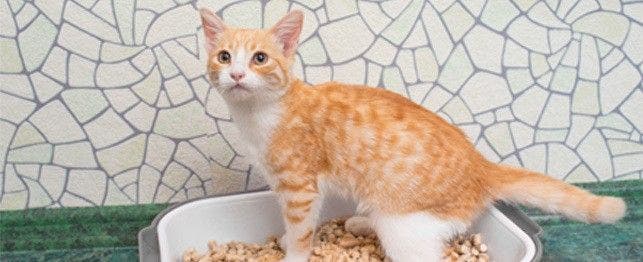
What It Costs to Own a Cat
Penlights that double as lug wrenches, the latest buffalo meat and chocolate cream pie diet book – ever wonder why all these questionable items are grouped together in the checkout lane?
The answer is pretty simple: all of them fall under the heading “impulse purchasing” – things we buy on impulse, without taking the time to consider their usefulness. We are all susceptible. If you don’t believe it, look in your garage or “junk drawer.”
While most impulse purchases are harmless enough, some are anything but trivial. Consider an addition to the family – of the four-legged variety. Often, well-intentioned people see a kitten that captures their heart and, without considering the ramifications, impulsively take the animal home.
The expense of owning a pet is probably the most overlooked consequence of any pet-owner relationship. Advances in pet care, especially in the development of pet foods and medical research, have caused ownership costs to increase over the last 10 years. Since it’s not likely that this trend will reverse itself any time soon, potential “pet parents” should consider their finances before taking home a new pet.
While it is certainly not necessary that a house cat have a diamond collar or a Wedgwood china food bowl, all owners need to provide the basics of professional medical care, quality food and adequate shelter. The only other necessity for a responsible owner to provide is love – and that’s free.
Listed below are approximate costs of basic care for cats. Costs can vary widely, depending on where you live and specifics associated with each individual pet.
The Cost of a Cat
Purchase prices of cats and kittens vary according to type and quality of animal. However, many kittens are free for the asking because of the seemingly unending supply of unplanned and unwanted litters. While most house cats are mixed breeds, pure breeds are now becoming popular, and their costs vary as do purebred dogs.
Kittens – The First Year
Veterinary Care/Laboratory Tests – $150 to $225
Immunizations – $120 to $185
Internal/External Parasite Treatment and Control – $50 to $140
Spay/Neuter – $90 to $200. The cost may depend on the cat’s sex and age.
Food – $100 to $200
Miscellaneous (toys, beds, bowls, scratching post, litter box, etc.) – $125 to $150
Total: $635 to $1100
Cats – Annual Costs
Veterinary Care/Laboratory Tests – $70 to $150
Wellness exams/Immunizations – $80 to $175
Internal/External Parasite Control – $50 to $90
Food – $75 to $200
Miscellaneous (litter, toys, etc.) – $100 to $155
Total: $375 to $770
Note: These costs will vary considerably, depending on special care. Typically, indoor cats require only routine annual veterinary care until they reach their later years – usually after they are 10 years old. In later years, more medical attention, special diets, and medications may be required.
You should also note that costs vary between stores, veterinarians and by region. This does not include adoption fees or boarding or pet sitting expenses.
Is Pet Insurance Right for you?
The best pet insurance offers coverage that’s broad enough for whatever care your pet needs and with enough options to get the perfect coverage for you and your pet.
Are you pet crazy? Sign up for our email newsletter and get the latest health and wellness info, useful tips, product recalls, fun stuff, and so much more!